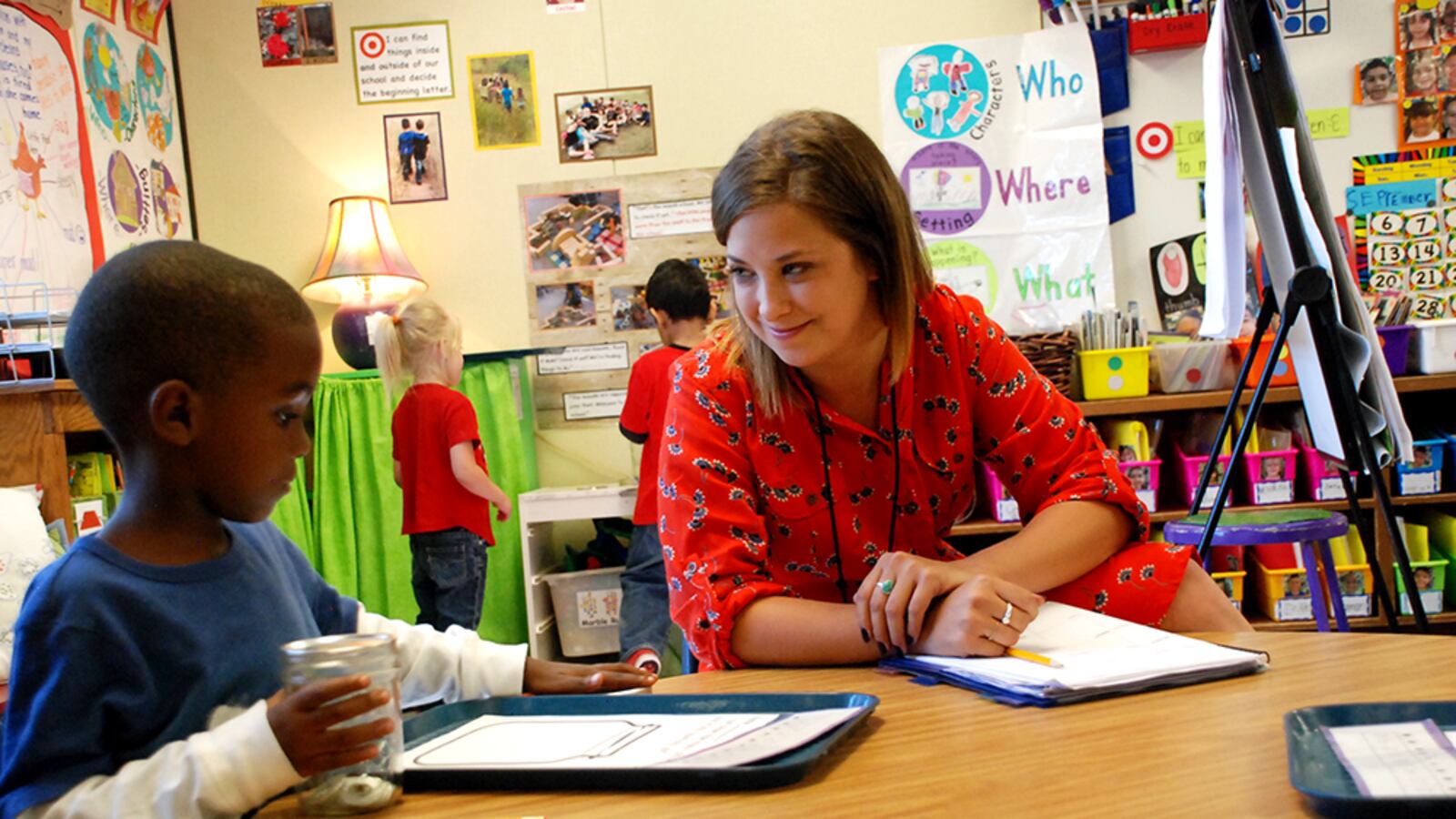AURORA — Lily Wool is surrounded by dozens of kindergartners counting items in a jar.
Like the students, she’s learning valuable lessons — in this case, that students learn at different paces. While some can easily count to seven, others need a number line as a crutch.
Wool isn’t the classroom’s assigned teacher. She’s a member of the state’s oldest teacher-residency program, Stanley Teacher Prep, which will merge with the Boettcher Teacher Residency program to create Colorado’s largest teacher-preparation program of its kind.
The Public Education and Business Coalition, which runs the Boettcher program, announced the merger Wednesday.
Residency programs, while not new, are in vogue. They place aspiring teachers in well-run and effective classrooms to learn the practical lessons of teaching while they earn a master’s degree and teacher licenses from a university.
Residency programs, which usually run two years, offer a stark contrast to the traditional four-year program teacher college model, which usually only requires a semester of student teaching.
In its first year, 130 teachers-in-residence will enroll in the joint Boettcher-Stanley program. The program should grow to 150 by the 2016-2017 school year, said Rosann Ward, PEBC’s president.
“We’re creating a deep bench of teachers for Colorado,” she said.
Most graduates from the programs stay in the classroom for at least eight years. That’s a contrast to national surveys that find half of all new teachers leave within three years.
Colorado’s teacher turnover rate, which measures how many educators either left their classroom for a different teaching position or left the profession altogether, reached a 10-year high of 17 percent in 2014. Another report found fewer Colorado high school students are entering traditional teacher colleges.
But a Colorado Department of Education official said there’s little evidence that Colorado is part of a national teacher shortage — yet.
“We haven’t seen that much change over the last three years in the amount of licenses we issue,” said Katy Anthes, executive director of the department’s educator effectiveness office.
Finding teachers for subjects such as math or special education can be difficult. Rural schools also usually have a harder time drawing applicants, Anthes said.
“It’s a complex issue that breaks around subject area and geography,” she said.
Supporters of teacher-residency programs, including Tollgate principal Laurie Godwin, said the programs benefit students.
Teachers who enter the classroom through a teacher-prep program can be better prepared on their first day because they’ve spent so much time in a classroom already and have a wide network of support throughout the year.
“If we can train more teachers at higher levels in Colorado, we can close the achievement gap,” Godwin said. “But it starts with teachers.”
(Disclosure: Chalkbeat Colorado began as a program of the PEBC.)
Correction: An earlier version of this article incorrectly identified Lily Wool as Lily Woods.

